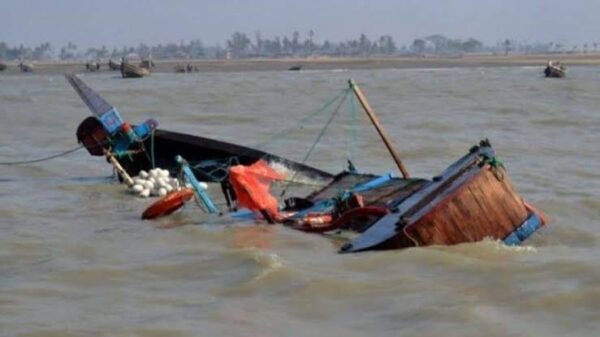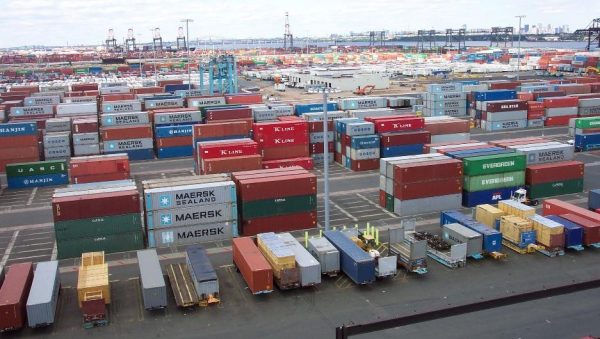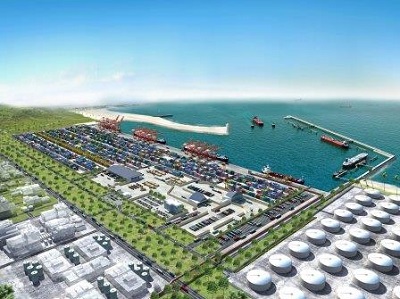Ban on Beans: A Wake Up Call

The recent ban on imports of dried beans from Nigeria to European Union (EU) member countries to prevent a serious risk to human health after border authorities consistently found dangerous levels of the unauthorised pesticide dichlorvos has provoked some questions, and with our penchant for manipulating the system, Nigerian consumers might be susceptible to poisonous food imported from overseas.
For example, the imported semi-processed poultry products and meat: several studies conducted by researchers in public agencies from markets in Lagos, Abuja and Port Harcourt are quite revealing. A study by Okiomah Abu, a nutritional enzymologist, says “poultry products imported into the country contain toxic and heavy metals that can worsen the occurrence of food-borne diseases” because of the combination of feeds the animals eat and the toxic chemicals and solvents used in preserving them so that their owners can get them into the country to be sold at cheaper prices.
The rejected beans which not only has the disagreeable dichlorvos, also have high levels of other chemicals like Chlorpyrifos, Cyhalothrin, Dimathoate, Trichlorphon and Omethoate, considered to be highly toxic and if ingested can result in convulsions, dizziness, sweating, difficulty in breathing, abdominal cramping, diarrhea, vomiting and loss of consciousness.
These pesticides that are intentionally applied to plants to attack invertebrate pest and plant diseases are also utilised in the storage of beans, but the presence of their residues proves high risk to human health and according to the European Food Safety Authority, the dichlorvos pesticide content in the beans was between 0.03mg per kilogramme to 4.6mg/kg, well above the acceptable maximum residue limit of 0.01mg/kg.
Maximum Residue Levels (MRLs) are part of Good Agricultural Practices and are meant to reflect the highest amount of pesticide residue allowed in food substance treated with correctly applied pesticides. MRLs are primarily trading standards, which are applied to help ensure that residue levels do not pose unacceptable risks for consumers.
The food items banned from Europe till June 2016 are beans, sesame seeds, melon seeds, dried fish and meat, peanut chips and palm oil which stakeholders lament is a setback for a nation that desperately needs to expand its export basket to boost domestic agricultural activities and create jobs.
The untenable excuse by Paul Orhii, the Director-General, National Agency for Food and Drug Administration and Control (NAFDAC) is that exporters caused the problem by not complying with regulatory requirements for semi-processed and processed commodities. NAFDAC has not conducted its regulatory oversight properly and needs to put stringent measures in place to monitor our products and guarantee them as safe for export before the next EU review in 2016. The Ministry of Agriculture did not pay sufficient attention to the problem either.
We should be wary, the World Health Organisation said, “Food contaminants, such as harmful parasites, bacteria, viruses, chemical or radioactive substances, cause more than 200 diseases – ranging from infectious diseases to cancers.” The global health body added that unsafe food is linked to the death of about 2 million people annually.
Small wonder why the Nigeria Customs Service (NSC), recently has embarked on operation ‘hawk descend’ as effort towards enforcing the ban on imported poultry products, which are massively smuggled into the country. The government at the three tiers should also make policies to boost poultry and fish farming in the country to meet local demand and for export.
The EU action suggests that our unfavourable balance of trade position with our international partners will worsen as we cannot export more agricultural goods. The first quarter figures (2015) released by the National Bureau of Statistics (NBS), showed that crude oil and gas accounted for 89.2 per cent of our total export of N3.23 trillion with other exports constituting only 10.8 per cent while the nation imported goods and services worth N1.64 trillion within the same period.
The Nigeria Agricultural Quarantine Service (NAQS), as the regulatory agency charged with the main objective of preventing the introduction, establishment and spread of exotic pests and diseases of all agricultural products in international trade needs to employ measures like ensuring beans are stored in pest and disease free warehouse and silos, liaise with Customs to check all export agro products going out of the country at the port of exit and work with relevant authorities to check the activities of smuggling. Infact, if that ban on Nigerian beans products is to be lifted come 2016 then NAQS have their job cut out for them.
We need to reverse this dependency on imports and harness our natural resources to become self-reliant in food production, The Ministry of Health, NAFDAC, the Standards Organisation of Nigeria (SON) and the newly inaugurated National Food Safety Management Committee (NFSMC), should see the EU ban as a wake-up call to sanitise food exported from Nigeria, and those being consumed at home.







